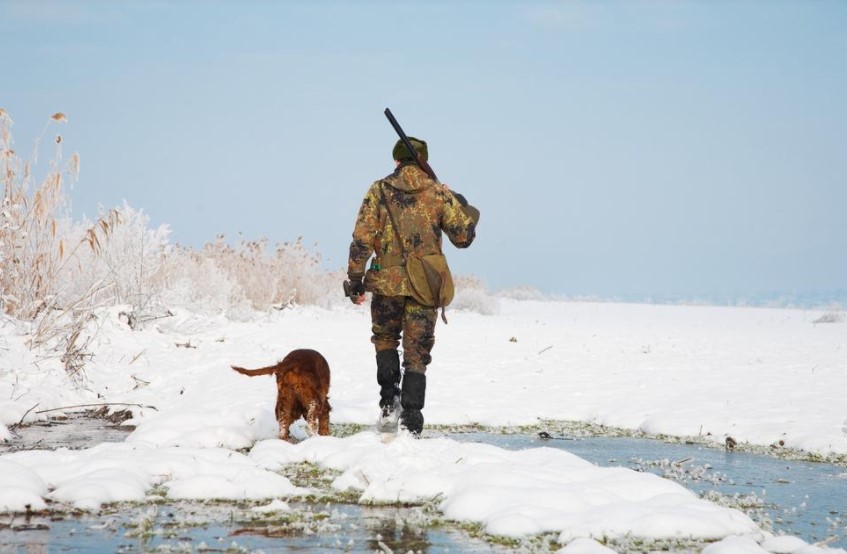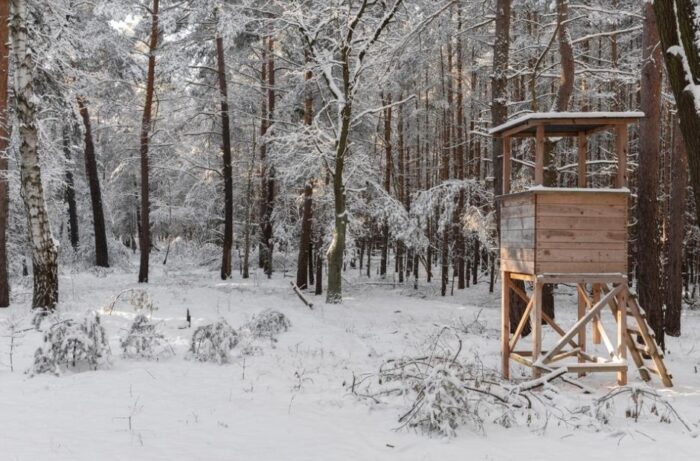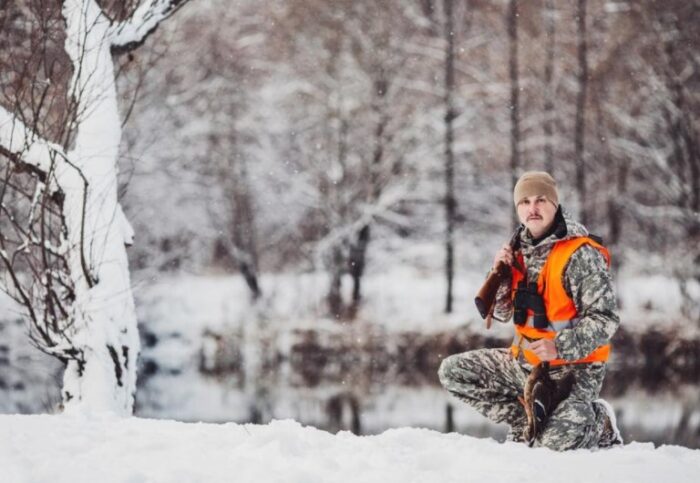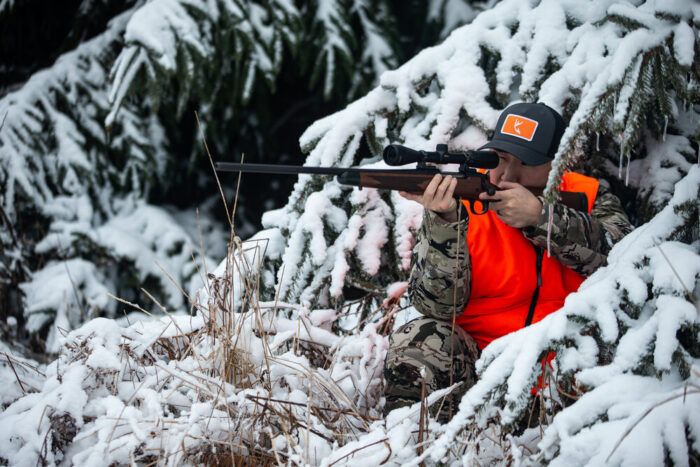
Winter typically signifies the end of the hunting season, with most game animals hibernating until the spring. However, veteran hunters understand that winter provides some of the best conditions for bagging prey.
When you head out to your hunting blind after the snow falls, you’ll discover many elements of the sport that become easier and more enjoyable. And if you are newer to utilizing a hunting blind, you can check out great options for both ground and elevated hunting blinds at ShadowHunterBlinds.com.
Here are a few reasons why you should add hunting in winter to your bucket list:
1. Tracking Is Easier
No matter how well you think you’ve placed your shot, there’s no guarantee that you’ll kill or incapacitate a deer or another game animal where it stands. That means tracking your prey through the woods. When there’s a canvas of white snow on the ground, fresh tracks and blood trails are more sharply defined.
When tracking animal prints in the snow, look for unique print characteristics to make sure you are tracking the correct animal. A chipped hoof or a longer toe can set a track apart and keep you on course to locate your prey. Besides tracks, the snow makes it easier to locate signs of animal activity such as urine, deer scrapes and feces.
Based on the amount of snowfall covering tracks or other signs of animal activity, you may be able to estimate how long ago the animal was at the location. It’s best to follow a fresh set of prints when hunting. Look for signs that indicate the trail has gone cold. Older tracks may be frozen at the bottom, look enlarged or have snow falling away at the edges, reducing the amount of detail.
2. Solitude

Cold temperatures can deter casual or inexperienced hunters from sharing the field, allowing you to hunt with fewer distractions. Experienced hunters are less likely to spook the game or mistake you for a deer. With fewer people out in the woods, chances are you’ll see increased animal activity.
Peak hunting season in busy areas can be overwhelming for wildlife, and hunters who don’t know how to cover their tracks may drive away game. In the winter, you’ll benefit from reduced through traffic and have the hunting location mostly to yourself. If your favorite aspect of hunting is enjoying the calmness of the snow-covered wilderness, you won’t be disturbed at this time of year.
3. Improved Visibility
When the leaves fall and the trees become bare, you can see and identify animals farther away. Setting up elevated hunting blinds under these conditions is ideal because there are no leaves to obstruct your line of sight. You’ll also have a clearer shot with either a bow or a rifle.
4. Less Insect Activity

Stinging and biting insects can be a nuisance during the spring and summer months, requiring the use of repellent sprays on your skin, clothing and equipment. In the autumn and winter, when temperatures begin to drop, many insect species migrate or enter a state of dormancy, called diapause, until temperatures rise again. However, you will still need to be mindful of some ticks species, especially when temperatures on the ground exceed 45° F.
5. Increased Safety
The blaze orange reflective vest you wear to identify yourself to other hunters shows up more against a white, snow-covered background than against the dead brown leaves of fall.
This heightened visibility makes it safer to hunt in the winter than in other seasons. While the blaze orange color makes you more visible to other hunters, you are still concealed from your prey.
The eyes of a deer have fewer cones than human eyes, which affects their ability to detect colors with long wavelengths, such as red and orange. This is why they’re unable to see the brightly colored vest you wear as part of your hunting outfit.
6. Terrain Is Easier to Navigate

Although the weather conditions can make hunting in the winter a significant challenge, sub-zero temperatures benefit from easier terrain. Muddy fields, marshes, lakes and creeks that typically make traversing your hunting ground tricky are all frozen over during the winter. With a high-quality pair of hunting boots, you can locate prime hunting areas previously inaccessible during the spring or fall.
7. More Effective Baiting
If your state allows deer baiting, you can take advantage of this fool-proof tactic for attracting prey during the winter. As food sources are scarce, deer are less wary of your bait traps.
Set up bait piles in locations with clear sightlines, then sit inside your ground blind and wait for the big bucks to approach. This technique is especially beneficial for bowhunters, allowing you the best chance of making a humane kill.
8. Easier to Transport Your Kill

Once you’ve recovered your kill, you’ll need to transport it. Dragging a freshly killed buck over uneven and rough terrain can be time-consuming and exhausting, especially when you also have to worry about attracting predators, such as black bears or cougars.
When the ground is covered in snow, you can use a sled to navigate terrain that would have been impassable during the spring or summer. The cold also preserves your meat against spoilage for a longer period.
9. Simplified Hunting Tactics
Deer behave more predictably during the colder months when food becomes scarce. For example, deer will return to the same feeding areas repeatedly. Deer also search for bedding areas that protect them against the wind and provide some kind of overhead cover.
To conserve energy, deer will “yard up,” congregating in one area as long as food remains available. This habit provides you with ample opportunities to accurately scout a hunting ground, set up a blind, and secure a shot.
Try Hunting This Winter
Hunting during the winter months has several important benefits, but your choice of equipment is also essential. You’ll need to ensure you dress appropriately for the environment, which means wearing multiple insulating layers, thermal socks and high-grip waterproof boots.
You should carry gear to prevent hypothermia, such as space blankets and fire-starter kits. When you prepare for the conditions, you’ll find that hunting in the winter is just as rewarding as hunting at the beginning of the fall season.














